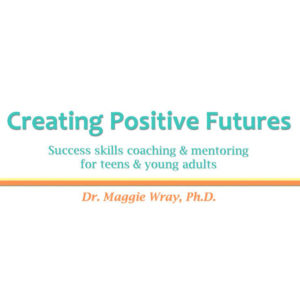Author: artefact_admin
Tips for Common Challenges
Manage Anxiety in Your ADHD Kids
This month’s blog is actually an interview that I had with the team at ImpactADHD. com. It focuses on building resilience and competency as a way to help ADHD kids manage their anxiety. Check it out! http://impactadhd.com/manage-emotions-and-impulses/kids-with-anxiety/
Reduce Holiday Overwhelm–Simplify!
Despite our best intentions, it seems like most families are frequently more stressed by the holiday season that they would like. Between our regular responsibilities of work, parenting and other life tasks, we now add shopping for gifts, planning family celebrations, attending holiday parties and cooking special foods. Perhaps you work all day, make dinner, put the kids to bed and then shop online or cook until midnight. Or maybe you rush out to shop during lunch, hurriedly eat a sandwich at your desk and then wrap gifts in the bathroom after the kids are asleep. Sound familiar? Everyone is excited about the holidays and there is much to enjoy.  Yet, sometimes you may feel like things are rushed and out of control. Parents often feel so pressured during this season. ADHD kids, with their knack for picking up when things are frantic and responding to that energy, really benefit from slowing things down. When too much stimulation comes at them, they just don’t have the ability to process what’s happening effectively. They become easily overwhelmed and, depending on their personalities, act out their feelings in ways that, unfortunately, can be inappropriate. You, too, may be reacting to all of the things you have to do in ways that aren’t your best self. How can you approach this holiday season so that everyone is calmer? Slowing down is the first, most important step. Many families just take on too much during this time of year. Perhaps you have some organizational or planning challenges yourself that add to feeling overwhelmed. Of course, exercise, yoga or meditation are generally helpful but you probably need more than that right now. Here are specific ways that you and your ADHD sons and daughters can manage the holidays with less stress and more calm:
Yet, sometimes you may feel like things are rushed and out of control. Parents often feel so pressured during this season. ADHD kids, with their knack for picking up when things are frantic and responding to that energy, really benefit from slowing things down. When too much stimulation comes at them, they just don’t have the ability to process what’s happening effectively. They become easily overwhelmed and, depending on their personalities, act out their feelings in ways that, unfortunately, can be inappropriate. You, too, may be reacting to all of the things you have to do in ways that aren’t your best self. How can you approach this holiday season so that everyone is calmer? Slowing down is the first, most important step. Many families just take on too much during this time of year. Perhaps you have some organizational or planning challenges yourself that add to feeling overwhelmed. Of course, exercise, yoga or meditation are generally helpful but you probably need more than that right now. Here are specific ways that you and your ADHD sons and daughters can manage the holidays with less stress and more calm:
- Take a minute to think about your to-do list. It may very well seem too long
 and impossible to accomplish in the time you have. Go through the list and mark the things that are most important to you. Since this can be hard to do, talk with your partner or a friend to assist you in prioritizing and eliminating. Removing, consolidating or getting help is the first step in creating balance.
and impossible to accomplish in the time you have. Go through the list and mark the things that are most important to you. Since this can be hard to do, talk with your partner or a friend to assist you in prioritizing and eliminating. Removing, consolidating or getting help is the first step in creating balance. - Ask your kids to reflect on their gift list. Maybe they can pick a few bigger gifts or activities instead of several smaller ones. This would make things a lot easier for you and possibly better for them. You can help your ADHD child or teen with this and model how to simplify.
- Ask your children to assist you in activities they like–cooking, shopping and wrapping. This will also reduce your burden and encourage their participation. Most ADHD kids like to do things. Why not have them work with you on
 holiday projects? Even if it takes management, you are connecting with them, teaching all kinds of skills and involving them in the process. It’s a win-win.
holiday projects? Even if it takes management, you are connecting with them, teaching all kinds of skills and involving them in the process. It’s a win-win. - Talk with your family about the holiday plans. While it may be challenging for ADHD kids to plan ahead, they certainly have opinions about what they like to do. When some of their preferences are part of the picture, you increase the likelihood for their cooperative participation.
- Set reasonable expectations for togetherness. Remember that ADHD kids especially need down time to regroup mentally and emotionally. Make sure
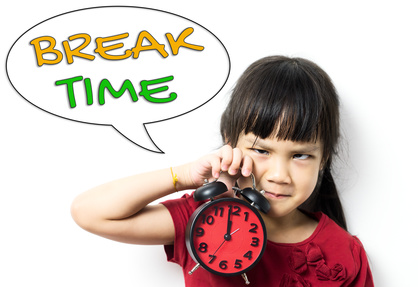 there is time each day for this. It doesn’t matter if they are reading, watching tv, playing a computer game, drawing, playing with Lego or listening to music–they need time with reduced input that they choose. This time helps their system de-activate. You, too, would probably benefit from some time like this.
there is time each day for this. It doesn’t matter if they are reading, watching tv, playing a computer game, drawing, playing with Lego or listening to music–they need time with reduced input that they choose. This time helps their system de-activate. You, too, would probably benefit from some time like this.
 It sounds corny but less is actually more in these weeks. Take some time to do less and you and ADHD kids will reap the benefits! Happy holidays to you and your family!
It sounds corny but less is actually more in these weeks. Take some time to do less and you and ADHD kids will reap the benefits! Happy holidays to you and your family!
ImpactADHD: 5 Steps to Improve Cooperation with Your Kids with ADHD
Making ADHD Family Vacations Fun!
“Are we there yet?” “How much longer?” Family vacations often start with high hopes. 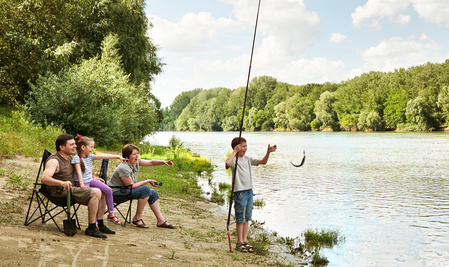 Everyone imagines bubbly laughter, good food and happy connections. You are excited and so are your kids. Usually, things work out as you had hoped: people get along well and have a good time. Sometimes things don’t work out as much as you would have liked. Arguments, tantrums, logistical difficulties bring everyone down. What are the ingredients for a successful ADHD family vacation? In the New York Times travel tips section on July 10, 2016, Kay Merrill, a family travel specialist, recently offered some ideas for making family getaways as good as you imagine them to be. Her article inspired me to create suggestions about traveling with ADHD kids.
Everyone imagines bubbly laughter, good food and happy connections. You are excited and so are your kids. Usually, things work out as you had hoped: people get along well and have a good time. Sometimes things don’t work out as much as you would have liked. Arguments, tantrums, logistical difficulties bring everyone down. What are the ingredients for a successful ADHD family vacation? In the New York Times travel tips section on July 10, 2016, Kay Merrill, a family travel specialist, recently offered some ideas for making family getaways as good as you imagine them to be. Her article inspired me to create suggestions about traveling with ADHD kids.
- Include everyone in the planning: Family trips work better when everyone’s interests and needs are part of the equation. ADHD kids like information and respond well
 when presented with it. Even children as young as 5 years old have ideas about what they like to do. Put together a file (digital or hard copy) with maps, places to see and interesting activities that you have pre-selected as possibilities. Then, sit down as a family, look these over and see what intrigues folks. Rule things in that appeal to your children but also to you too. This way the trip can be fun for everyone.
when presented with it. Even children as young as 5 years old have ideas about what they like to do. Put together a file (digital or hard copy) with maps, places to see and interesting activities that you have pre-selected as possibilities. Then, sit down as a family, look these over and see what intrigues folks. Rule things in that appeal to your children but also to you too. This way the trip can be fun for everyone. - Include everyone in the preparation: Everyone can play a role in getting the family ready for a trip. If your child can read and follow a list, then they are old enough to participate. Make a short packing list of things that they could put together: favorite toys, games, books or even clothing. Be specific. Instead of saying “Pick 3 toys,” try saying “Pick one doll, two of her outfits and 3 books.” Instead of writing, “pack your clothes,” ask them to lay out “2 swimsuits, 3 pairs of socks and 1 pajamas”–neutral items that don’t require checking in with you to select. When ADHD kids help out like this, they gain a sense of competence and autonomy from being responsible for themselves. Simultaneously, you gain some much needed assistance in the packing process.

- Create a break in the day: Packing too much into a vacation often has disastrous results. An itinerary of going, going, going all day is exhausting and overwhelming for everyone, especially ADHD kids. They often benefit from unstructured time to process their new experiences–whether that means reading, playing computer games or swimming in the hotel pool. You will likely benefit from a rest too. Talk with everyone in the family about what time of day would work best and use an alarm on your phone to make it happen.
- Be open to the unexpected: Spontaneity often leads to amusing surprises and hilarious memories. Be flexible and curious about opportunities. In those inevitable challenging moments, try to find a silver lining and some laughter. Remember, you are on VACATION. The goal is to have fun.

I wish you well on your family trip–whether you stay close to home or venture further afield. ENJOY!!
Interview w/ Maggie Wray Ph.D: Unstoppable Teens | Helping teens develop the skills they need
Get More Love in Your ADHD Family
Too often ADHD families are so busy dealing with the stress of daily living that cultivating loving connections can take a back seat more that everyone would like. Recently I read “The 5 love languages: The secret to love that lasts” by Gary Chapman. In this best-selling book, he starts with the idea (from Dr. Ross Campbell) that we carry around from childhood an internal ’emotional love tank” waiting to be filled with caring, affection and kindness. When this happens, children develop normally but when the tank is empty, kids misbehave (p.20). Mr. Chapman thinks adults have the same needs but fail to give love in ways their partners can actually receive it. In looking at couples and how they can improve their relationships, he identifies 5 ways of communicating love: words of affirmation, quality time, receiving gifts, acts of service and physical touch.  I think Mr. Chapman’s ideas apply just as well to ADHD families. When you are running to the lacrosse field to bring your daughter the cleats she forgot yet again, when you are arguing with your son to pick up the mountain of dirty clothes off his floor so you can find the missing library book or when you are sitting down for the nightly homework struggle, taking the time to consider how to express your love for your ADHD child is likely not at the forefront of your mind. You are just trying to manage the stressful situation in front of you. But, there are other moments when it can be. Quieter, calmer times like the moments when you read a story, when you share a snack, when you chat casually in the car. The value of the Mr. Chapman’s model lies in figuring out how your ADHD son or daughter best receives love and tries to express it to you. This understanding will promote a natural give-and-take of closeness that will fuel both of your love tanks. First, start with yourself. Ask yourself what feels best to you. Is it when someone says something nice to you about you or something you have done (words of affirmation)? Is it spending meaningful time doing something together (quality time)? Is it getting a special something, a token of thanks (receiving gifts)? Is it when someone does something helpful or nice for you (acts of service)? Is it being hugged, caressed or holding hands (physical touch)? While these all may be important, try to decide on your top two choices.
I think Mr. Chapman’s ideas apply just as well to ADHD families. When you are running to the lacrosse field to bring your daughter the cleats she forgot yet again, when you are arguing with your son to pick up the mountain of dirty clothes off his floor so you can find the missing library book or when you are sitting down for the nightly homework struggle, taking the time to consider how to express your love for your ADHD child is likely not at the forefront of your mind. You are just trying to manage the stressful situation in front of you. But, there are other moments when it can be. Quieter, calmer times like the moments when you read a story, when you share a snack, when you chat casually in the car. The value of the Mr. Chapman’s model lies in figuring out how your ADHD son or daughter best receives love and tries to express it to you. This understanding will promote a natural give-and-take of closeness that will fuel both of your love tanks. First, start with yourself. Ask yourself what feels best to you. Is it when someone says something nice to you about you or something you have done (words of affirmation)? Is it spending meaningful time doing something together (quality time)? Is it getting a special something, a token of thanks (receiving gifts)? Is it when someone does something helpful or nice for you (acts of service)? Is it being hugged, caressed or holding hands (physical touch)? While these all may be important, try to decide on your top two choices.  Then consider your child. What do you notice feels good to him or her? What do you think helps the two of you feel close? Again, pick your top two choices. Next, ask them. This conversation itself is already enriching your relationship. See if you can make an agreement about what filling their love tank looks like (be as specific as possible but ruling out buying gifts daily). Have them pick the most important one or two. Remember, that what nourishes them might be different than what nourishes you. That’s okay. The goal here is to deepen the positive bonds between you. As their parent, your job is to initiate that.
Then consider your child. What do you notice feels good to him or her? What do you think helps the two of you feel close? Again, pick your top two choices. Next, ask them. This conversation itself is already enriching your relationship. See if you can make an agreement about what filling their love tank looks like (be as specific as possible but ruling out buying gifts daily). Have them pick the most important one or two. Remember, that what nourishes them might be different than what nourishes you. That’s okay. The goal here is to deepen the positive bonds between you. As their parent, your job is to initiate that.  Making a concerted effort to put some extra attention and energy into nurturing the love language that feeds your child the most will certainly strengthen your connection to each other. This bond produces the cooperation, affection, honesty and fun we all want in our families. ADHD kids, who often suffer from feelings of low self-worth and wrestle with many daily frustrations, particularly benefit from being seen and heard. You will reap many rewards–affection, cooperation, humor–by doing more of what feeds them. I am confident that they will start to reciprocate as well and you, too, will get some fuel for your own love tank.
Making a concerted effort to put some extra attention and energy into nurturing the love language that feeds your child the most will certainly strengthen your connection to each other. This bond produces the cooperation, affection, honesty and fun we all want in our families. ADHD kids, who often suffer from feelings of low self-worth and wrestle with many daily frustrations, particularly benefit from being seen and heard. You will reap many rewards–affection, cooperation, humor–by doing more of what feeds them. I am confident that they will start to reciprocate as well and you, too, will get some fuel for your own love tank.
Creating incentives that work
Creating Incentives that Work: How to do you get your child or teen to do things around the house? Do you  ask your daughter nicely to set the table at first but then resort to yelling when she won’t get off her phone? Do you calmly warn your son that it is time to turn off the television but then shut it off angrily when he ignores you? Is there more stress than cooperation in your family than your would ideally like? Many parents struggle with the challenge of motivating their children and teens to do what they are supposed to do when they need to it—whether or not the kids have ADHD. In our world today, the technological gadgets and social media networking sites are far more seductive and rewarding than ever before. For kids with ADHD, such activities are more than distractions: they are completely absorbing. To set successful limits on these activities and help your son or daughter focus on what needs to be done now (like chores, homework, job, etc), you have to use an effective incentive program to reward desired behaviors.
ask your daughter nicely to set the table at first but then resort to yelling when she won’t get off her phone? Do you calmly warn your son that it is time to turn off the television but then shut it off angrily when he ignores you? Is there more stress than cooperation in your family than your would ideally like? Many parents struggle with the challenge of motivating their children and teens to do what they are supposed to do when they need to it—whether or not the kids have ADHD. In our world today, the technological gadgets and social media networking sites are far more seductive and rewarding than ever before. For kids with ADHD, such activities are more than distractions: they are completely absorbing. To set successful limits on these activities and help your son or daughter focus on what needs to be done now (like chores, homework, job, etc), you have to use an effective incentive program to reward desired behaviors.  Now, you may ask: “What is the difference between a rewards and a bribe?” Good question!! A bribe is something appealing that you give to someone before she performs the desired task. For instance, we see bribes in crime shows on television all of the time: “Hey, here’s a hundred bucks if you take this package across the street.” Frequently, the package doesn’t arrive and the runner takes off with the cash. An incentive is something appealing that you give to someone after they have completed the desired action. On a crime show, this would look like: “Here’s a package that goes across the street. When you have delivered it successfully, come back and I’ll give you a hundred bucks.” The runner delivers the package, returns and gets paid his wage. Now obviously, I am not suggesting that we should make our families into crime shows. These are just examples to clarify that incentives reward desired behaviors. Research on children and teens with ADHD has shown that reward incentives that are desirable for the kids and immediately given out support improved behavior on a number of executive functioning tasks. This means that when the incentives are attractive, they can help improve skills such as planning, organizing, persistence and self-control. Here are some guidelines for setting up incentives that work for your ADHD kids and will work for you too!
Now, you may ask: “What is the difference between a rewards and a bribe?” Good question!! A bribe is something appealing that you give to someone before she performs the desired task. For instance, we see bribes in crime shows on television all of the time: “Hey, here’s a hundred bucks if you take this package across the street.” Frequently, the package doesn’t arrive and the runner takes off with the cash. An incentive is something appealing that you give to someone after they have completed the desired action. On a crime show, this would look like: “Here’s a package that goes across the street. When you have delivered it successfully, come back and I’ll give you a hundred bucks.” The runner delivers the package, returns and gets paid his wage. Now obviously, I am not suggesting that we should make our families into crime shows. These are just examples to clarify that incentives reward desired behaviors. Research on children and teens with ADHD has shown that reward incentives that are desirable for the kids and immediately given out support improved behavior on a number of executive functioning tasks. This means that when the incentives are attractive, they can help improve skills such as planning, organizing, persistence and self-control. Here are some guidelines for setting up incentives that work for your ADHD kids and will work for you too!
- Take a few moments and think about what your child LOVES to do: the options can range from go out for ice cream, to playing Minecraft, to using Facebook or Instagram, to watching television, to sleepovers, to using your car. Make a list of all of these things BEFORE your start a conversation with him. Remember that these are privileges, not entitlements.
- In a calm moment, ask your daughter what are her favorite ways of spending time. Write these down and then go over your ideas with her.
- Together, pick one area of his life that could use improvement: getting started with homework, cleaning up after dinner, hanging up the wet towel from his shower instead of leaving it on his bedroom floor, getting to school on time, etc.

- Now, pick one item from the favorite activities list and link it directly to the activity you have chosen. For example, if the desired goal is getting ready for school on time and the favorite activity
- This is a process of negotiation but you must hold firm about the goal and figure out collaboratively what the appropriate incentive is to obtain it. If things get tense, take a mutual break but come back to it before the day is over.
You CAN create a win-win situation with this process. You obtain the behavior that you want without losing your cool and your child or teen gets something s/he wants too.
Change Writing Challenges into Writing Successes
Over the years, I have noticed that many, many ADHD kids seem to have trouble with writing. While some kids like it because it is a venue for expressing their many ideas quickly and creatively, others despise it because getting even a few words on the page is torturous. Sometimes the physical act of writing is hard and penmanship can be tough to decipher. Organizing thoughts in their heads and translating them into coherent essays requires that several key Executive Functioning skills run simultaneously like clockwork. These skills, naturally weaker in people with ADHD, synthesize writing into a linear, well-formed essay.
kids like it because it is a venue for expressing their many ideas quickly and creatively, others despise it because getting even a few words on the page is torturous. Sometimes the physical act of writing is hard and penmanship can be tough to decipher. Organizing thoughts in their heads and translating them into coherent essays requires that several key Executive Functioning skills run simultaneously like clockwork. These skills, naturally weaker in people with ADHD, synthesize writing into a linear, well-formed essay. 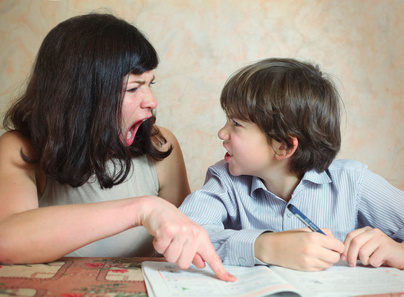 Writing can often be a source of tension in ADHD families for children who struggle with it. Just as asking neutral, probing questions about learning styles related to reading and math skills leads you to helping your child improve in those areas, discussing your child’s individual and idiosyncratic process of writing with them can reduce the mystery and frustration about it. In a calm moment, grab a pen and paper and try a conversation like this:
Writing can often be a source of tension in ADHD families for children who struggle with it. Just as asking neutral, probing questions about learning styles related to reading and math skills leads you to helping your child improve in those areas, discussing your child’s individual and idiosyncratic process of writing with them can reduce the mystery and frustration about it. In a calm moment, grab a pen and paper and try a conversation like this:
- Together, identify something that is easy or not that bad about writing. Maybe it’s getting an idea, maybe it’s researching a topic, maybe it’s the typing. Find something and jot it down. Emphasize aloud that this is something your child or teen does well.
- Next, help your son or daughter make a list. This list will use a rating scale from 1 to 10: 10=THE VERY HARDEST PARTS of writing; 1=THE LEAST HARDEST PARTS of writing. Using this language is important. You have already found something (maybe a few things) that your daughter says is easy. Now you are trying to get a specific sense of what the most difficult aspects of writing are and how she thinks about them. Use the list of basic skills needed for writing (shown below) to help you. Add any of your own that you think would be important. Some ADHD kids prefer to talk out their ideas instead of writing them down; include this on your list too if it is true for your child.
- Brainstorm alternatives to areas that your child identifies as THE VERY HARDEST PARTS. These ideas can include getting writing support at school from teachers, going to a writing center at school, working with a friend or finding a writing tutor. They can also involve breaking writing assignments into smaller, achievable parts and making sure their teachers give them clear guidelines for writing that take into account where they need the most help.
List of basic Executive Functioning skills needed for writing: Coming up with basic ideas (initiation) Selecting ideas that are relevant and do-able (prioritizing) Remembering information about the topic to focus ideas (working memory) Making an outline or plan of your project (planning, prioritizing, organizing) Putting together research with your own thoughts (organizing, sequencing) Amount of time it takes to do writing (time management) Being able to continue on the project until it is finished (goal persistence) 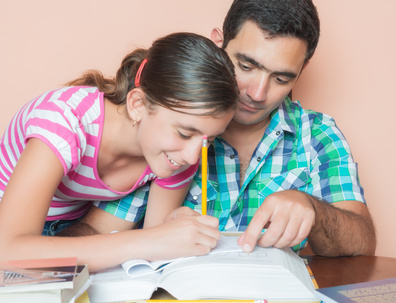 In general, I don’t advise having you proofread or teach writing to your ADHD child or teen if there is already conflict about written work in your home. If your child is open to your assistance, then of course give it. Otherwise, let the teachers or tutors do this so you can stay with your role as supportive parent. That’s what your son or daughter really needs most to help them manage their writing frustration and build confidence. Good luck!
In general, I don’t advise having you proofread or teach writing to your ADHD child or teen if there is already conflict about written work in your home. If your child is open to your assistance, then of course give it. Otherwise, let the teachers or tutors do this so you can stay with your role as supportive parent. That’s what your son or daughter really needs most to help them manage their writing frustration and build confidence. Good luck!

